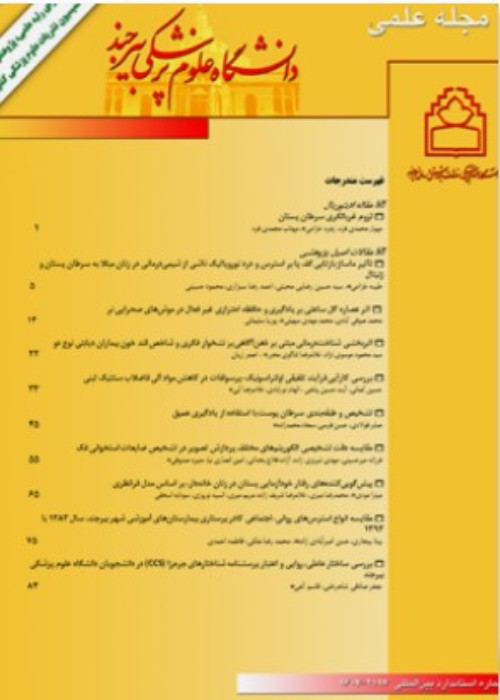Antioxidant and antimicrobial effects of methanolic and aqueous extracts of Cuminum cyminum, Carum carvi, and Nigella sativa against Escherichia coli, Salmonella typhimurium, Bacillus cereus, and Staphylococcus aureus
Nowadays, due to the toxic effects of synthetic compounds, we are witnessing a marked increase in the use of natural types, such as plant extracts. The present study aimed to assess the total phenolic and flavonoid content and in vitro comparative study of the biological activities of methanolic and aqueous extracts of Cuminum cyminum, Carum carvi, and Nigella sativa.
This study measured the total phenolic and flavonoid contents. Thereafter, antioxidant capacity was measured by the DPPH free radical scavenging and reducing power methods. The minimum inhibitory concentration (MIC) and minimum bactericidal concentration (MBC) were evaluated using the broth microdilution method.
Based on the results, total phenol and flavonoid contents varied from 6.1 to 37.7 mg GAE/g dw and 6.2 to 56.2 mg QE /g dw in the studied species. The species showed high antioxidant capacities. The extracts from the studied species exhibited significant antioxidant activity, with the highest percentage of DPPH free radical inhibition being attributed to the methanolic extract of Carum carvi at a concentration of 400 μg/mL (74.67%) and the highest iron-reducing capacity being attributed to the methanolic extract of Carum carvi at a concentration of 1000 μg/mL (54.0%). The results also pointed out that the methanolic extracts of all three plants, Cuminum cyminum, Carum carvi, and Nigella sativa, have antibacterial activity against four bacterial species: Escherichia coli (PTCC1399), clinical Salmonella typhimurium, Bacillus cereus (PTCC1015), and Staphylococcus aureus (ATCC25923). The lowest inhibitory concentration (25.6 mg/ml) and the lowest bactericidal concentration (5.12 mg/ml) were observed for the methanolic extract of Nigella sativa against E. coli, while among the aqueous extracts, only the aqueous extracts of Cuminum cyminum and Nigella sativa exhibited antibacterial effects against the four studied species.
As evidenced by the results of this study, methanolic extract of three Cuminum cyminum, Carum carvi, and Nigella sativa had significant antioxidant and antibacterial activity against pathogenic bacteria. Therefore, these extracts can be considered natural herbal products for the management of bacterial infections.
- حق عضویت دریافتی صرف حمایت از نشریات عضو و نگهداری، تکمیل و توسعه مگیران میشود.
- پرداخت حق اشتراک و دانلود مقالات اجازه بازنشر آن در سایر رسانههای چاپی و دیجیتال را به کاربر نمیدهد.


